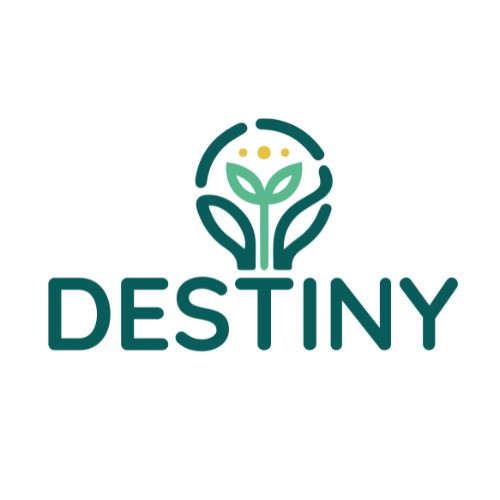Bioeconomy’s “DESTINY”: Shaping a greener future
After an energetic launch on 1 January 2024 and a very successful kick-off consortium meeting on 9-10 January 2024, DESTINY is ready to increase its momentum opening new opportunities for the bioeconomy experts of tomorrow. DESTINY will rely on a cross-sectoral network and bringing together numerous disciplines – from agronomy and engineering to economics, political and social sciences – to create a novel type of scientist: the bioeconomist.
About DESTINY
The EBUs’ joint doctoral network DESTINY – DEsign and SusTainability assessment of Innovative biomass production systems and value-chains in the bioecoNomY – is a Horizon Europe Marie Skłodowska-Curie Action that was launched on January 1st and will last for 4 years , until the end of 2027. The project, developed under the EBU umbrella and involving all EBU University members (as of the time of the proposal’s submission), aims at fostering the transition from a fossil-based economy towards a bio-based one by developing novel methods and tools to optimise biomass production systems, develop novel bio-based value chains and assess their sustainability holistically.
As one of the core objectives, the DESTINY doctoral network will train a new generation of researchers and practitioners through multi-disciplinary curricula, equipping 15 Doctoral Candidates (DCs) with the knowledge required to design and assess novel biomass production systems and bio-product value-chains. The research programme is at the crossroads between and targets the agricultural and forestry sectors, the bioeconomy industry, academia, consultancies and governments. DESTINY graduates will bridge a well-evidenced gap on the labour market for the bioeconomy and will secure jobs in the agricultural and forestry sectors, the bioeconomy industry, academia, consultancies and governments.
The training Programme
DESTINY will create an environment conducive to state-of-the-art multidisciplinary and inter-sectoral training, of high relevance to achieve both the transferability of research results and the future employability of DCs. The skill set envisioned in this network encompasses sustainability and inter-disciplinary competences, as well as scientific and technical knowledge in social and natural sciences. To cover these bioeconomic skills, DESTINY beneficiaries will work together to create a unique training programme combining their fields of expertise and complementing them by involving companies either as Associated Partners or through the Advisory Board. These stakeholders represent the biomass production sector (in agriculture and forestry), the conversion industry or consultancies advising them or policy bodies, which provides a link to policy-making and governments.
This joint training programme will provide DCs with a personalised, optimal skills set, aligned with their research programme. The training programme will be based on the following elements:
- collaborative mentoring programme
- secondments or short stays at industrial and academic partners
- complementary training at beneficiaries’
- regular network meetings
- network-wide training events
- dissemination and outreach activities
DESTINY will enrol 15 DCs for a total duration of 36-48 months, depending on the position. The PhD degrees will always be awarded by two partner universities in the form of a double research doctoral degree, as per the Joint Doctorate rules. These institutions will jointly recruit, supervise and evaluate DCs based on the already existing Multilateral Framework-Agreement for awarding Double Doctoral Degrees (Co-tutelle) of the EBU. In addition to a double doctoral degree, DCs will be awarded a certificate of the EBU DESTINY network, appearing as a diploma supplement.
Recruitment Process
| APT | BOKU | UEF | UHOH | UniBo | WUR | |
|---|---|---|---|---|---|---|
| Designing concepts for sustainable intensification of agrifood chains | ✅ | ✅ | ||||
| Model-based approaches to predict the performance of industrial plants on marginal agricultural land in Europe | ✅ | ✅ | ||||
| Understanding the functionalities of agriculture waste streams to redesign crops | ✅ | ✅ | ||||
| Ecological relevance of waste management in bioeconomy | ✅ | ✅ | ||||
| New Business models on bio-based textile products | ✅ | ✅ | ||||
| Antiviral activity of woody materials and their coatings in built environment | ✅ | ✅ | ||||
| Holistic evaluation and interconnected value generation of hemp utilisation in material, chemical and pharmaceutical sectors | ✅ | ✅ | ||||
| Early-stage evaluation of bio-based production chains | ✅ | ✅ | ||||
| Assessment of the acceptance of novel sustainable intensification approaches and of their environmental impacts | ✅ | ✅ | ||||
| Augmented Reality for Biodiversity valuation in grassland production systems | ✅ | ✅ | ||||
| Multi-criteria sustainability assessment of innovative biomass supply systems | ✅ | ✅ | ||||
| Comprehensive top-down ecological sustainability assessment of biomass potentials in a bioeconomy | ✅ | ✅ | ||||
| Comparative analysis of the governance solutions for regional bioeconomy systems and the identification of innovative solutions | ✅ | ✅ | ||||
| Analysis and simulation of innovative policy instruments to promote sustainable biomass supply | ✅ | ✅ | ||||
| Agricultural biomass production management in contrasted European territories | ✅ | ✅ | ||||
